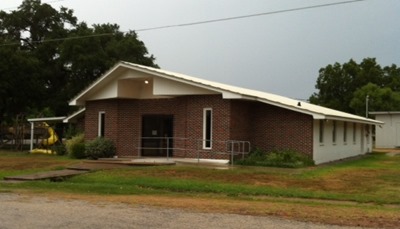3 Ways to Prepare Ourselves to Share with Other People
 The New Testament Book of Acts includes a story from the life of Philip that can give us guidance today as we seek to reach unbelievers with the gospel.
The New Testament Book of Acts includes a story from the life of Philip that can give us guidance today as we seek to reach unbelievers with the gospel.
Philip had been ministering in Samaria when an angel appeared to him with a different assignment. He should leave Samaria, and travel south to a road connecting Jerusalem with Gaza. Luke comments that it was called “the desert road” (Acts 8:26). On this road, he came upon a political official returning home to Ethiopia.
Philip’s attention was taken as the man was sitting in his chariot reading audibly from Isaiah’s writings. The narrative tells us the official—a eunuch in Queen Candace’s court—had been to Jerusalem to worship. Doubtless, he had heard from the passage but did not have understanding of it.
The man’s lack of understanding was the bridge Philip walked over to start a gospel conversation. You can check out the entire story in Acts 8:26-40.
As we saw a few weeks back, people today still go to the Bible when they have problems. Among those surveyed, 42% had turned to the Bible within the past year to help them deal with pressure. One-quarter of Americans had done so within the last month.
It is more than reasonable to assume many of these people did not know a specific truth they were seeking, except some kind of help in a time of need. This is where we, like Philip, should be prepared to step in. Here are three ways we can prepare ourselves to share with others:
First, we need to know the Bible.
Philip was well enough versed in the available Scripture (the Old Testament) to explain Isaiah 53 to the eunuch. As disciples, we also need to know the Bible well, and be able to help others make application.
Second, we should expect to come across people who are reading the Bible, but lack understanding.
The eunuch’s situation is not unusual. In fact, it occurs today. Just because people are looking to God’s Word does not mean they understand it. When they don’t understand, that is the open door for us to express the truth.
Third, we should take the time needed to bring clarity to the Scriptures.
He didn’t just say, “Yeah, just read around in that general area and it will all make sense.” He “proceeded to tell him the good news about Jesus, beginning from that Scripture” (v. 35).
We have so many awesome tools, like Bible Studies for Life, to help us in the discipleship process. Whether we are interacting at home, in a small-group Bible study or with an unbeliever at work, let us be like Philip: prepared to help others where the Bible meets life.
Yours for the Great Commission,
Ronnie W. Floyd
Senior Pastor, Cross Church Northwest Arkansas General Editor, Bible Studies for Life
My Small Church Roots
In the July/August edition of Outreach Magazine, there is an article that comprises the testimonies of a few well-known pastors who were influenced by a small-membership church. With the exception of one, all of the testimonies shared how they engaged in a small church while in college. I enjoyed the article and testimonies, and was reminded of my own small church roots.
My Only Roots were Small Church Roots
I grew up in the small town of Yoakum, Texas; a town of 5,000 people in south central Texas, 90 minutes from the cities of San Antonio, Austin, Houston, and Corpus Christi. We lived for Friday Night Lights and church.
Mom and Dad were pillars in our small church. In fact, they helped build our little church building. I remember after Dad had worked long hours in his job as a door to door salesman, Mom after getting home from work, would make supper and we would take it to Dad at the church. I remember sitting on the floor, watching Dad eat as he paused from stapling in ceiling tiles. Church was their life! Beyond the Lord, His church, and family, we did little to nothing except Friday Night Lights.
My Small Home Church was Really Small
My home church was the Faith Baptist Church. We would touch about thirty to forty people weekly. Periodically, we might even crawl above forty or fifty people, but soon would subside to our normal attendance. How do I remember all of that? It’s simple. Those numbers were posted weekly on the Sunday School Attendance Board that was placed in the small Worship Center that Dad helped build.
I remember vividly, how I thought a large church was the church in town that touched as many as two hundred people on Sunday. This is all I knew. When I left for college and someone asked me if I ever had the opportunity to pastor a church, where would I want to go? I told them, “If I could one day come back and pastor that large church, it would be great.” Honestly, it was pretty well the largest church I knew about. Size did not equal status to me.
My Small Home Church was So Small
Yes, I realize many would be skeptical as they read of my small church roots. Most would not imagine this being my past, but I have testified about it for years. Hey, you want to insure I know how small it was?
My small home church was so small that:
- Anyone could share their testimony whenever they wanted.
- Anyone could suggest their favorite hymn and it would be sung.
- Monthly business meetings were held on Wednesday nights with the following “King James Version” order:
- Minutes of the previous meeting read aloud
- Treasurer’s Report, giving publicly each monthly expense
- Old Business and yes, some of it was very old
- New Business, of which most was Old Business, that still needed to be settled, OR ideas a person thought we ought to consider doing, and even public airing of burdens and even grievances.
- Sunday nights the preacher did not “feel led” to preach, but opened it up for “testimonies. This usually involved the same people saying the same thing, testifying about their Lord.
- Wednesday night Prayer Meetings seemed endless, involving prayer requests and updates, spoken requests and “unspoken requests” (which I still do not understand) as well as a season of prayer that seemed like an eternity for those of us who were kids.
- Our Pastor usually transitioned every 18-30 months.
- We went to Sunday School, Worship, had the Preacher over for lunch, (NOT for Lunch) took a quick nap, then returned for Training Union and Sunday Night Worship.
- We went to someone’s home each Sunday night after church or had people at our home, usually for popcorn and coke, occasionally something like a cake leftover from lunch.
- I led worship as a young teenager and once I became a Christian and called to ministry, I preached repeatedly through my young ministry years.
- I was the ONLY student in the Sunday School class and in Training Union, both of which were taught by the same teacher.
Don’t think I don’t understand how some small churches operate. These are my roots.
Three Powerful Lessons My Small Church Roots Taught Me
My roots were so deep in a small church that most lessons I learned about the Christian life and church, I learned in that environment. Today, I remember more about their value than I knew then. Here are three powerful lessons I am so grateful I learned in my small church roots.
Lesson #1: The Bible is the Word of God
In our small church, the Bible was not questioned. We knew the Bible was the Word of God, completely infallible and without error.
Lesson #2: The Priority of the Local Church
There was never a debate about the priority of our church. We were taught that growing up and Dad and Mom did not tolerate anything other than this. I was engaged in church, regardless of my desire or schedule.
Lesson #3: The Value of Personal Evangelism
Every Tuesday night I was at church visitation. Many times I went with my Pastor or other church leaders who taught me how to lead people to Christ.
Personal evangelism was expected in my church, even though we were small in membership and attendance. Looking back, it might seem abnormal that a small church was so focused on personal evangelism. But as a teenager, I knew God wanted to use me to win others to Christ.
Finally
These are my roots and I am so grateful for them. They shaped my life and even my vision. Today, I love the opportunity to assist or engage any small church or her pastor. Today, I stand grateful to God for the Faith Baptist Church, which later merged with another church, a Hispanic church. My sister, Linda, serves full-time as their Church Secretary.
1000 Thank Yous, God, For My Small Church Roots,
Ronnie W. Floyd



